N.W.T. budget presents 'unsustainable' fiscal plan, increasing costs amid collapsing revenues
Budget calls for $117 million in new spending, with big spends on compensation and COVID-19 secretariat
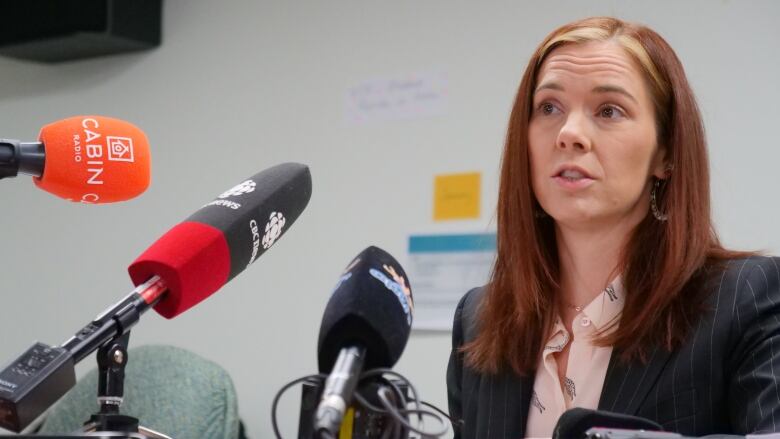
The N.W.T.'s proposed budget for 2021-22 projects a worsening financial situation for the territory as costs continue to escalate, with senior officials in the Finance department warning that the "current fiscal plan is unsustainable."
The budget anticipates tax revenues will plummet by nearly $40 million due to the COVID-19 pandemic, with economic activity shrinking by an estimated 6.6 per cent in 2020. Resource revenues are expected to drop to just $1.5 million in 2021-22, from nearly $30 million two years prior.
An escalating carbon tax is expected to increase revenue by more than $10 million on last year's revised estimates, but will cost the government $8.4 million in increased carbon tax offsets, including millions for large emitters.
The territory's short-term debt is projected to surge to $632 million, an increase of more than 27 per cent, moving the territory closer to its $1.8-billion federally-mandated borrowing limit. Interest payments on that debt are up 27 per cent.
The budget projectstotal expenditures of $2.124 billionin 202122, andtotal revenues of $2.192 billion.
Yet in a briefing with reporters, Finance Minister Caroline Wawzonek was adamant that her budget did not need to explore either cuts or tax increases.
"There's no intention on the part of the government to have significant cuts," she told reporters.
In fact, despite the territory's dire financial position, the budget allocates $117 million in new spending, with nearly a third dedicated to a $26-million increase in overall compensation and more than 280 new staff, mostly in Health and Social Services and predominantly in Yellowknife.
Of those, 155 new positions and $35 million in new spending are directed toward the controversial COVID-19 secretariat, which was intended to streamline the government's response to the pandemic.
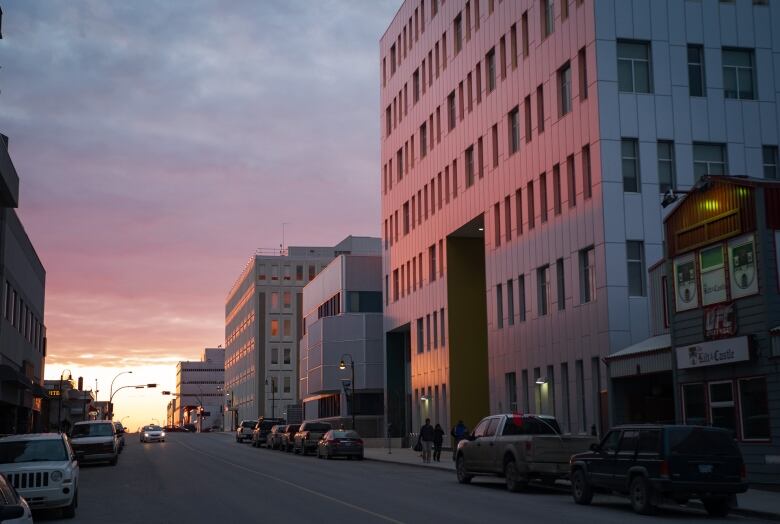
But most government departments are seeing their budgets increase by five per cent or more, with the biggest increases, outside of Health, in Infrastructure and Education, Culture and Employment.
The budget does expect a $68-million surplus, the first in several years. But officials said that surplus will fund existing infrastructure commitments, and decreasing revenue means the government will return to regular deficits by the end of the 19thLegislative Assembly if numbers don't improve.
"Knowing all this, I remain cautiously optimistic about our future,"Wawzonek said in her speech to the Legislative Assembly on Thursday.
'Aggressive' government spending review underway
Instead of cuts, Wawzonek said a "comprehensive" department-by-department review of expenditures, branded as a project in "government renewal," would find the necessary savings.
Starting with her own Department of Finance and the Department of Education, Culture and Employment, officials are reviewing programs for areas of duplication and inefficiency.
The goal, Wawzonek told reporters, is a shift to a "value-based" budgeting system, "where an entire program's spending needs need to be justified."
Though she was careful to say finding program and staffing cuts is not the mandate of the review, others in her department suggested the impact could be wide-ranging.
"It's going to be quite aggressive," Sandy Kalgutkar, the deputy minister of Finance, said in a briefing with reporters.
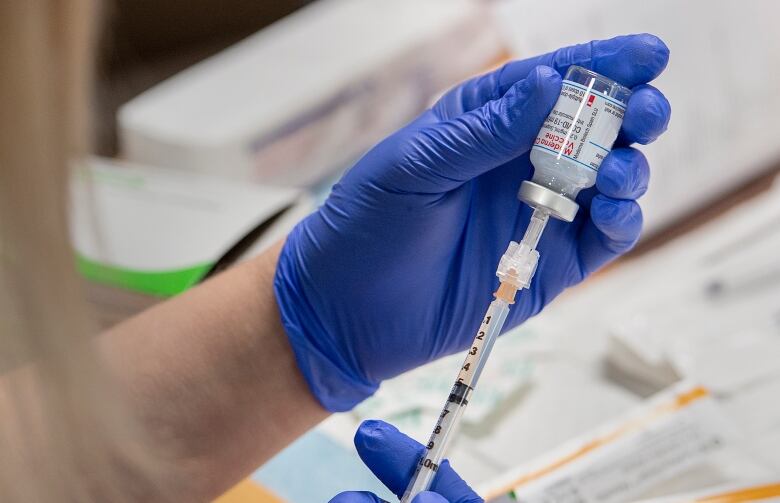
Feds foot much of COVID-19 bill
The territory spent an estimated $156 million on COVID-19-related costs in 2020-2021, of which about $123 million was covered by the federal government.
The remainder, about $33 million, was coincidentally the rough cost of the COVID-19 Secretariat programs not covered by the federal Safe Restart Agreement.
Officials said they were now expecting the secretariat to come in under budget, following the territory's decision to ask non-essential travellers to pay for stays at isolation centres. The centres are expected to make up the bulk of the secretariat's cost.
But the budget includes little detail on economic recovery measures, which will likely need to be rolled out this fiscal year as the territory achieves a high rate of vaccination.
"This is not the entire or exclusive government recovery package related to COVID-19," Wawzonek told reporters in a briefing prior to her speech to the legislature.
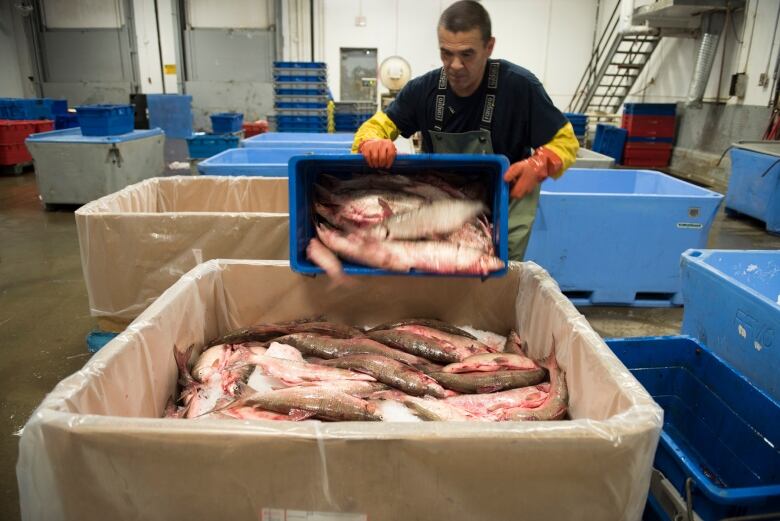
In her speech, Wawzonek said "putting forward a recovery plan while still in the midst of an evolving crisis is challenging."
"We need to invest when the moment is right to catch the wave of recovery."
Some mandate priorities lose out
For the second budget in a row, just $25 million was allocated for the mandate priorities of the 19th Assembly, which included increasing available housing, advancing universal child care, and improving "educational outcomes for all children."
The budget does allocate $2.6 million forthe government's climate change action plan, $1.7 million for a small business tax cut, and $7 million to "increase capacity" at the troubled department of Child and Family Services.
Overall funding for the N.W.T. Housing Corporation also increased by $5 million, intended to support applications to a federal co-investment program.
The budget also adds $631,000 for the creation of a "Gender Equity Unit" that will conduct gender-based analyses of government policies, and creates 27 new counsellor positions and a "travelling mental health team" for public schools.
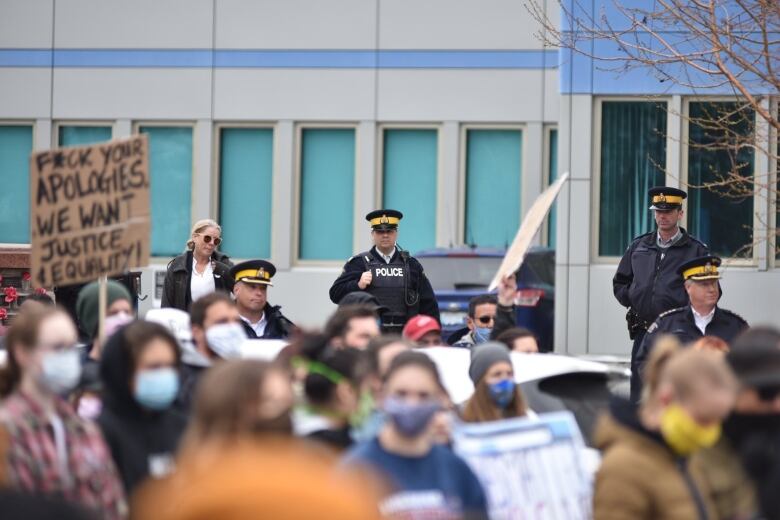
But other priorities did not fare so well. Just $600,000 is allocated for "Indigenous language revitalization," less than the $711,000 to be spent on French language services as part of an agreement with the federal government.
"I don't think this is a dollar for dollar comparison," Wawzonek said, adding that the spending will help localize existing language education and training programs. "I think the question will be to look at its performance at the end of the day."
Amid a growing debate about the funding of police services, the budget also allocates $422,000 for three new RCMP officers in Yellowknife.
"There's been a need for more constables for quite a while," Wawzonek said about the positions. "It's not meant to be part of a signal in one direction or another, philosophically. That's a longstanding request and need."
Wawzonek pointed to $300,000 for community justice pilot programs in the budget as an indication the government is listening to the concerns of critics.
Just $109,000 is allocated for increased costs at emergency shelters, which have seen a surge in use during the pandemic. And only $123,000 is budgeted for "increased inmate service costs," amid rising concerns that programming at the territory's jails is inadequate.

Projecting confidence
Wawzonek stressed that supplementary funding, approved later in the year, would add more power to the government's economic recovery efforts and other priorities.
"What we want is to be able, when the time is right, to be prepared to take action at that time, working in concert with our existing priorities," she said.
By projecting stability, even with falling revenues and increasing expenses, Wawzonek said the government will be well-positioned to attract new investment, and spur a quicker recovery.
"There's a lot that's happening in the Northwest Territories right now," she said. "We have to get the word out about that, and demonstrate that we are stable and fiscally confident."
The proposed budget must be debated and approved by MLAs in the legislature to take effect.












_(720p).jpg)


 OFFICIAL HD MUSIC VIDEO.jpg)
.jpg)



























































































